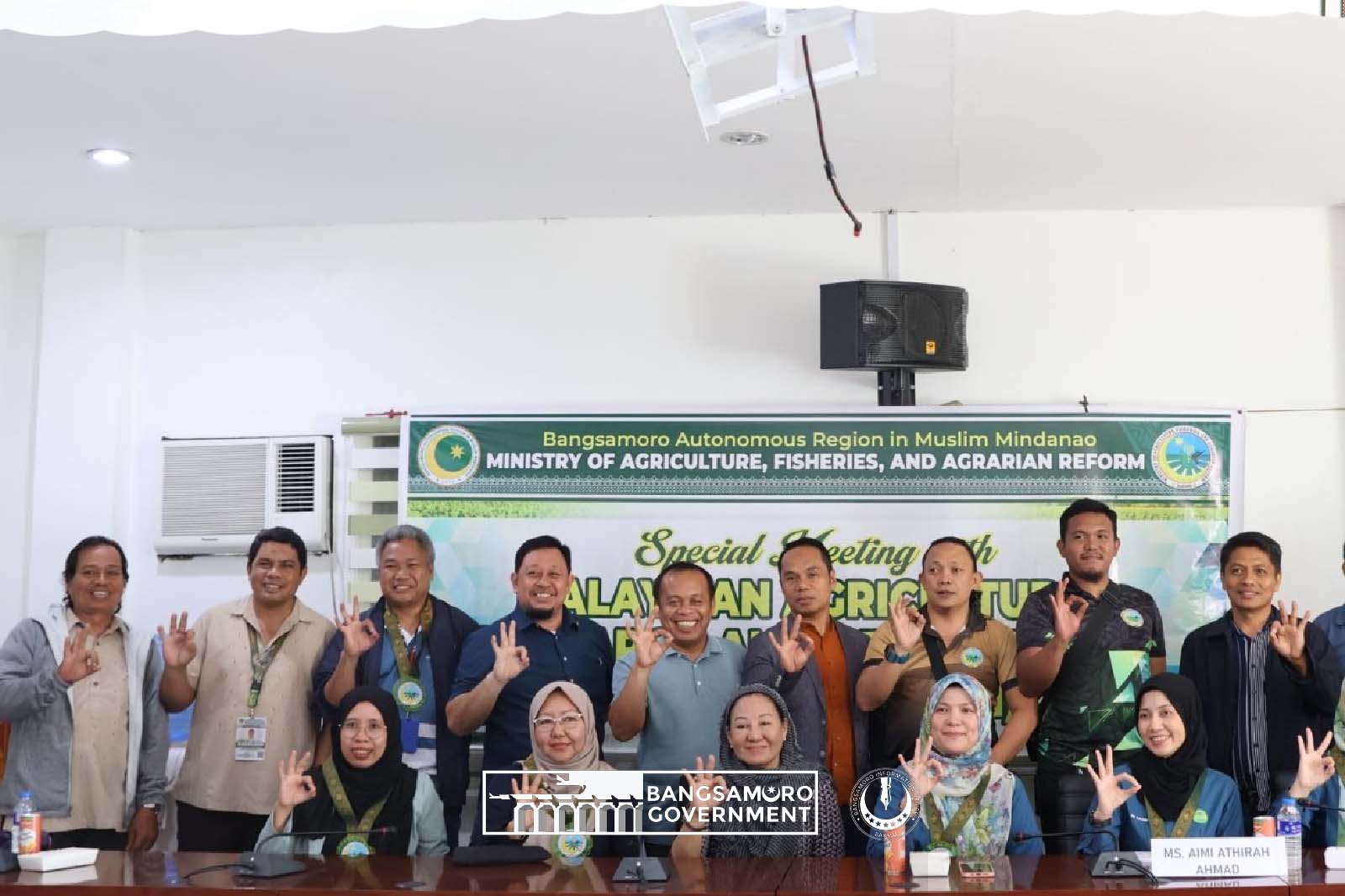Officials from various Bangsamoro ministries led by the Ministry of Agriculture, Fisheries, and Agrarian Reform (MAFAR) welcome officials from the Malaysian Agricultural Research and Development Institute (MARDI) on May 8, 2024, in Cotabato City for a benchmarking visit to explore the integration of smart agriculture technology in BARMM’s pineapple production chain. (Benyamen Cabuntalan/BIO)
COTABATO CITY—The potential for implementing smart technology in pineapple production in the Bangsamoro region has been discussed following a visit by the Malaysian Agricultural Research and Development Institute (MARDI) to the Ministry of Agriculture, Fisheries, and Agrarian Reform (MAFAR) here on May 8, 2024.
Accordingly, smart pineapple farming could increase the efficiency, productivity, and quality of pineapple cultivation and can help optimize resource usage, enhance monitoring and management practices, improve crop yield, and ensure better quality control throughout the production process.
MARDI visited the region for a benchmarking activity to explore avenues for research and development in pineapple production and assess the market potential of pineapples, including traceability measures.
MARDI is a government body in Malaysia under the Ministry of Agriculture and Agro-based Industry (MOA) that generates and promotes new, appropriate, and efficient technologies for the advancement of the Malaysian food industry, agro-based industries, and agriculture.
Siti Noor Aliah Baharo, the head of the Malaysian research delegation, provided a visual presentation on the overview of MARDI and the purpose of their visit.
“The Philippines is the world’s third-largest producer of pineapples, and because of this, we are very interested in visiting your farms and industry players to conduct a benchmarking study. We need your utmost support for this research venture,” Baharo said.
She expressed hope that the current relationship would lay the foundation for future agricultural cooperation between Malaysia and BARMM.
Mohamadtaha Pendaliday, MAFAR’s Director for Fisheries Research and Regulatory Services, warmly welcomed the MARDI delegation, expressing full commitment to fostering fruitful engagements and partnerships with the Malaysian research team.
“Malaysians are highly welcome here in MAFAR and in BARMM. We are honored by your presence in the Bangsamoro region. We are pleased to inform you that we are always amazed and proud of your technology in Malaysia,” Pendaliday said.
Discussing agricultural priorities, Dr. Tong Abas, Director for Research Development and Extension Services at MAFAR-BARMM, noted that while pineapple production is primarily managed by private companies in the region, MAFAR is committed to supporting research initiatives in the sector.
“Since pineapple production is mostly privately owned and managed, there are difficulties in obtaining data from these institutions,” Abas said.
Meanwhile, Bangsamoro Board of Investment (BBOI) Chairperson Mohamad Pasigan emphasized that the pineapple plantation registered in BARMM is located in the municipality of Wao in Lanao del Sur.
“Though it is owned by a private company, we can assist you in getting in touch with them since they are located in BARMM and registered in our investment office,” Pasigan said.
Pasigan added, “Wao Pineapple production, as far as I know, utilizes high-tech machinery to detect the quality of pineapple, and they are planning to expand their plantation areas, which might surpass the production of General Santos and even Bukidnon.”
Additionally, the BBOI presented investment roadmaps in BARMM and invited Malaysian delegates to explore the region’s potential in terms of agricultural investments and human resources. (Kasan Usop, Jr./BIO)








